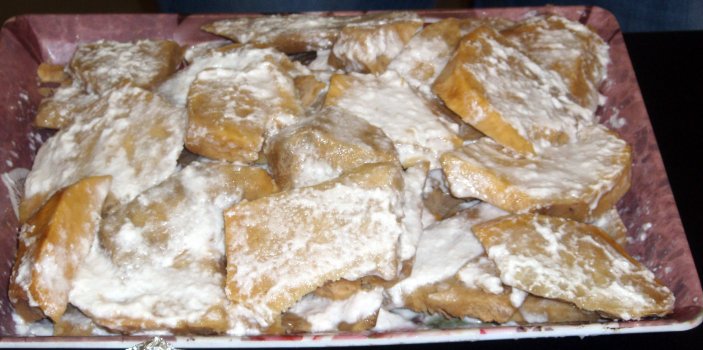 >
>Puna
16 October 2007
Although the food presentations have always been on a Thursday, Tuesday actually worked better apparently by being closer to the weekend.
The students from Chuuk including John Junior, Stallone, Garry, and Andrew teamed up with Divine Grace of Pollap to present the foods of Chuuk state. Accent marks for long vowels cannot be reproduced with standard accent character entities in web pages.
 >
>
Puna
Puna is hard taro. With coconut milk the dish is called ror. In Pollap hard taro served with coconut milk is called atipen. The coconut cup halves are called taka in Chuukese.
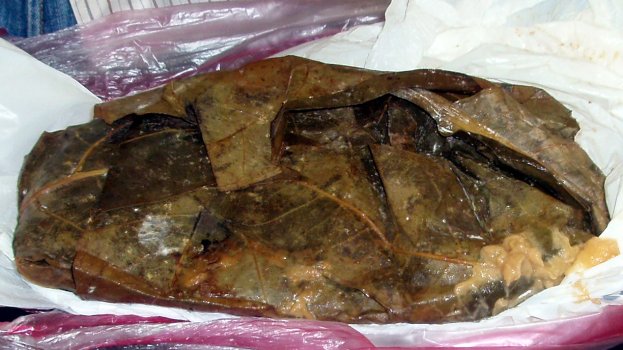
Apwet
Apwet is fermented breadfruit. It has been cooked in a breadfruit leaf. Apwet was and is critically important. Fermented breadfruit can be stored for months or even years in a properly prepared pit. This provides food between breadfruit seasons and during times of famine.
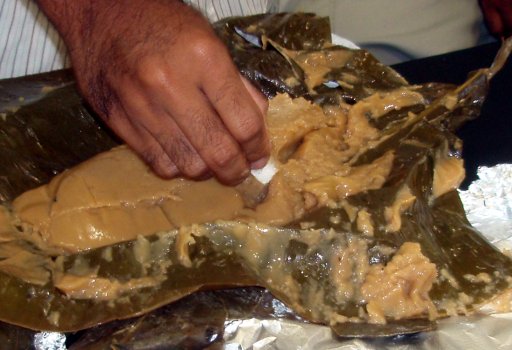
Eating apwet with taka
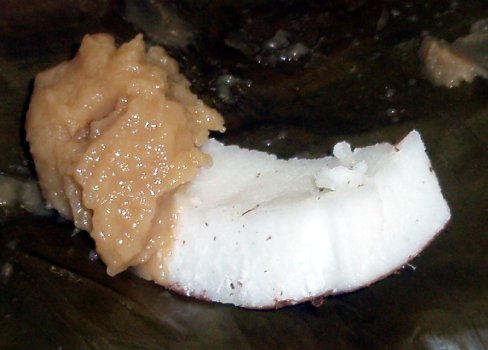
Apwet on taka "spoon"
This was the first term that Chuukese apwet was brought to the ethnobotany class. The apwet was prepared on a lagoon island in Chuuk lagoon, brought by boat to the airport, and flown to Pohnpei just for the class. Preparation of apwet is difficult in part because the apwet is hard to gather into the breadfruit leaf. Unlike the drier, loaf-like or pasty fermented breadfruits, Chuukese apwet is less solidified. The flavor is mild, with a good sourness that makes fermented breadfruit attractive to the seasoned palate. Having the opportunity to eat apwet on Pohnpei was a special treat for everyone.
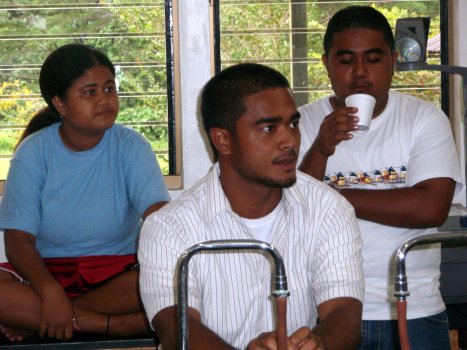
John Junior and Garry
On Pollap fermented breadfruit is called maar. When turned into the final finished food, the fermented breadfruit dish is called maar-mwaal.
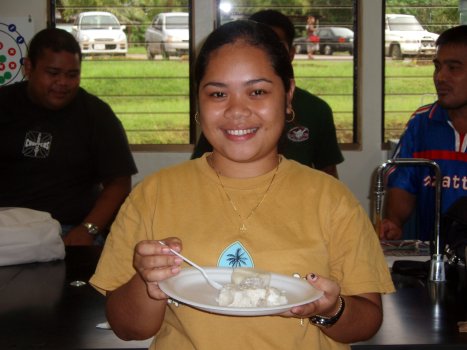
Divine
Pohnpei this term presented multiple dishes as a single unified group.
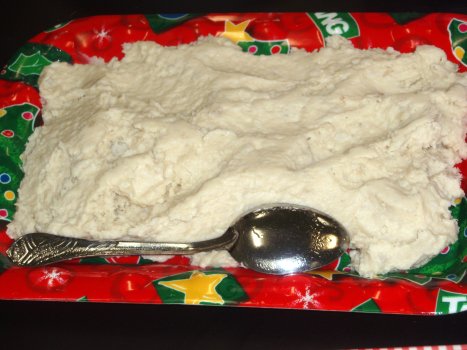
Kehp sukusuk by Sinolet
The kehp (yam) sukusuk had a slightly sweet, buttery flavor due to the addition of Carnation® condensed milk.
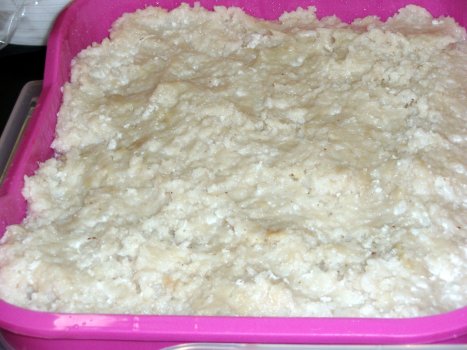
Rais and kehp pounded together with coconut milk
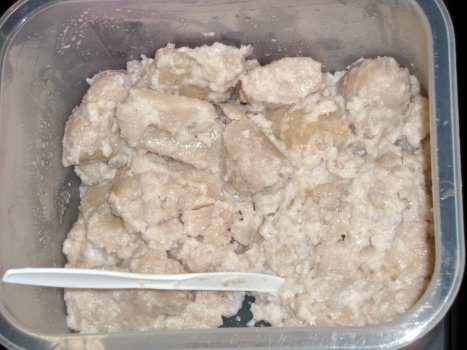
Kehp with coconut milk
Some coconut milks congeal to a coconut creme on contact with a starchy surface.
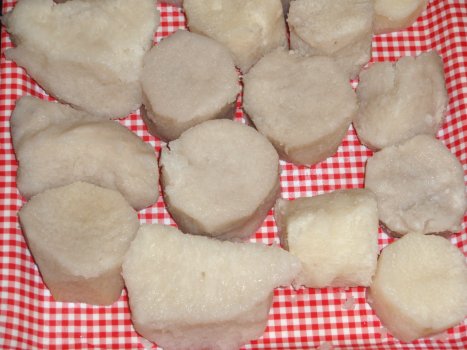
Boiled, sliced kehp
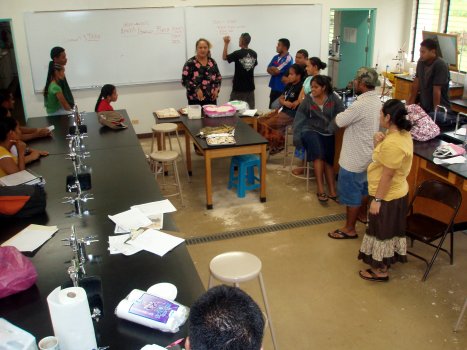
Sinolet presents
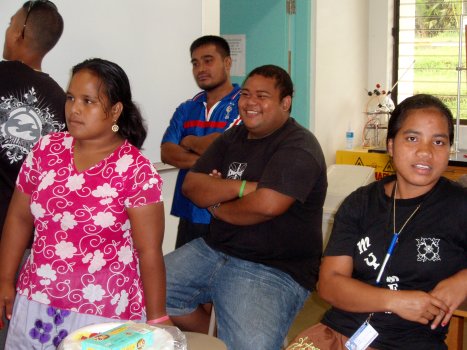
Lisa Lollaine, Pertin, Corbette, Maimi
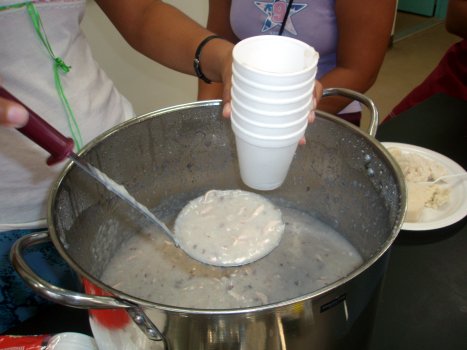
Sup usr
Sup usr is usually served with fish making the soup actually a meal-in-a-cup stew. The sup usr included pounded banana (usr), skipjack tuna (ik meoa), coconut milk (kaki), and red pepper (pwepuh fol). Kosraen soups are unique to Kosrae and immensely popular across Micronesia.
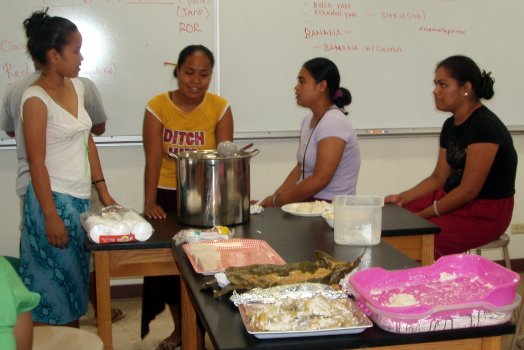
Lynn, Jefflyn, Elterina, Juslyn
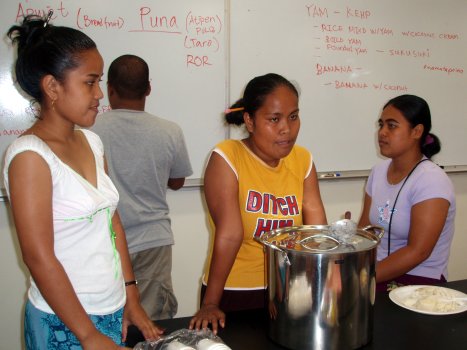
Bercil writes on the board while the women present their sup usr
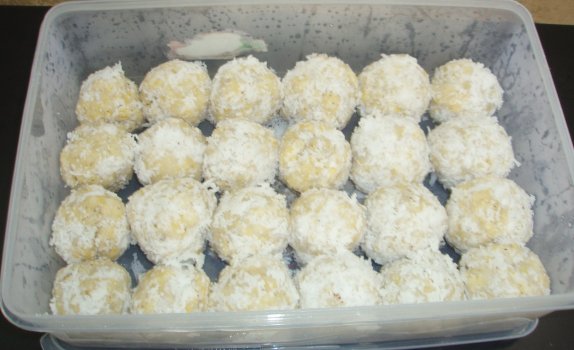
Kemelis
Kemelis is a special food associated with the ihdenkomw fishing festival on Pingelap. The men go out to fish for a particular fish while the women stay home and prepare kemelis. When the men return the island celebrates by eating the fish the kemelis. Made from boiled, pounded banana, and made into a ball, the kemelis is sweet and covered in coconut flakes. Kemelis would popular anywhere.
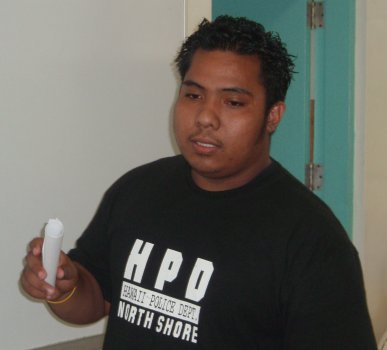
Ihney
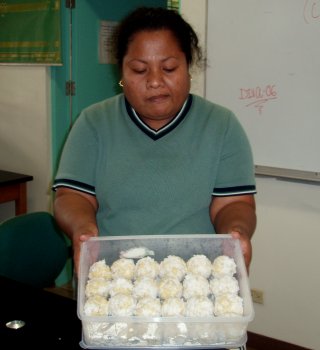
Meriko displays her kemelis
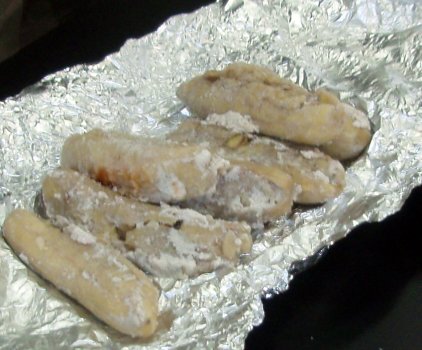
Samoo blae
Cooked banana (samoo donu) is a staple in the outer islands. When coconut milk is added on top, the result is samoo blae.
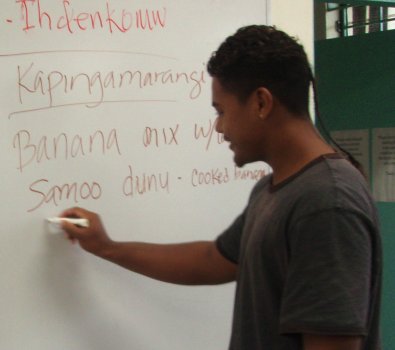
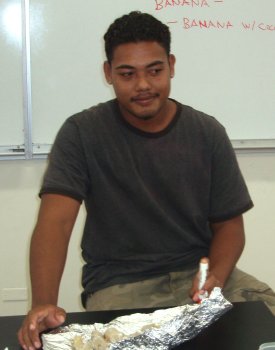
Midion
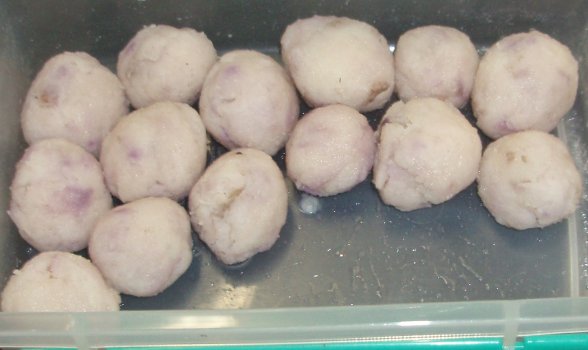
Cholgoy
Cholgoy is a food that was designed to appeal to very young children who might have difficulty chewing. The cooked and pounded yam is worked into balls making the yam soft and easy to chew. Cholgoy can apparently be applied to any such cooked, pounded, and balled starch. Sometimes a sweetener is added to attract the palate of the child. Yam is called du'oy on Yap.
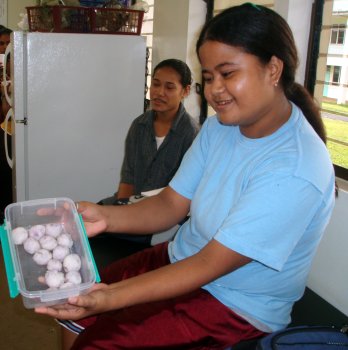
Julia displays the cholgoy